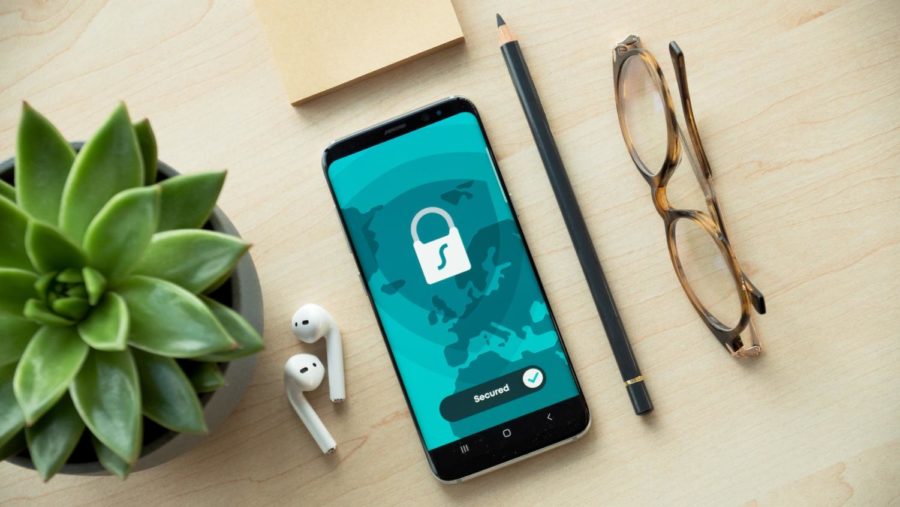Cyber security tips for college students
As the digital age continues to evolve into an essential part of daily life, it is important to take your online security seriously. Here are some ways you can keep your online life secure.
Online security is a growing concern. College students can benefit from protecting their devices and information online. The FBI’s Internet Crime Complaint Center reported more complaints (847,376) and losses ($6.9 billion) from internet scams in 2021 compared to the last four years.
“There’s sort of this digital twin of everything we are–our identity, all of our medical records, all of our bank information,” said Doug Jacobson, an electrical and computer engineering professor. “So, we really want to make sure that we have control of that.”
Use multiple passwords
The one thing you would not want anyone to know should not be the key to your entire online existence.
Jacobson said having diverse passwords is just as important as having a strong one. At the very least, you should cycle between a few passwords. It does not matter how strong and detailed your password is. If you reuse the exact same password for every service, a hacker will be able to access all your accounts if they figure it out.
Jacobson recommends organizing passwords into three categories and using a password manager to easily remember passwords for multiple accounts.
“Bank accounts and other types of authentication, those I tend to tell people to be unique,” Jacobson said. “Then you may have a set of things that are now really bad if you kind of lost them, but there you can do some password reuse. And then there’s the stupid sites that want a username and pasword to read a news report or whatever. There’s nothing associated with it.”
Prioritize your security now before the potential hassle of doing it later. A few recommendations include Bitwarden, LastPass and NordPass. Bitwarden offers a free version while LastPass costs $3 and Nordpass costs $2.49. Prices vary per plan.
Use multiple email addresses
Similar to passwords, use multiple email addresses for different purposes. This is an efficient way to stay organized and separate your professional life from your private life. Throwaway email addresses make it more difficult to trace activity you may not want others to know about. Use different email addresses for entertainment, work and school.
Use a virtual private network (VPN)
There are two ways a VPN primarily enhances privacy and security.
According to NordVPN, VPNs secure personal information by concealing your IP address and search-history. Organizations, hackers, websites and even your internet service provider will be unable to view your activity.
“All those ‘free wi-fi’s’ are open, and anybody with a laptop and free software can watch what you’re doing,” Jacobson said. “So, VPNs are a really good way to hide that traffic, so they can’t see what you’re doing.”
Jacobson exemplified Iowa State’s usage of a VPN.
“Iowa State’s VPN uses two-factor authentication,” Jacobson said. “The fact that you have to use that VPN to be an on-campus identity protects the on-campus services from misuse or attack.”
You can purchase a user-friendly VPN to make setting-up security easy. NordVPN’s one-year plan is priced at $4.99 per month, and ExpressVPN’s one-year plan costs $6.67 per month. CyberGhost’s best value deal is $2.29 per month for three years and three months. Prices vary per plan.
Social media scams
Whether you are on Facebook, Twitter, Instagram or Snapchat, there are scams everywhere. According to Cofense, social media phishing is a scam tactic to steal and sell personal data by posting, emailing or messaging intriguing links.
“There’s a lot of scams that tell you to do something and provide information that that organization should already know about you,” Jacobson said. “You’ve just got to understand some of what legitimate people will never do.”
Watch out for bots and sketchy organizations that send you links in your direct messages. Jacobson said you should not trust anybody, including friends, in case their account has been hacked.
“If you’re in doubt and get an email that a bank account has been compromised and you’re panicked, don’t click the link,” Jacobson said. “Go to your bank account and check what’s going on, or pick up the phone and call your bank.”
Antivirus programs and back-up data
Antivirus programs are a must-have to know if your device is in danger.
“Run whatever virus scanner, even the free ones,” Jacobson said. “I don’t care what it is. Run something; they’re all the same.”
From annoying pop-up ads to malware and viruses, these are usual signs that your device has been breached. If you accidentally click on suspicious activity, run the antivirus software. Occasionally back-up your data and restore as a last resort if corruption is too severe.
Get educated in cybersecurity
Preventing disaster before it occurs starts with yourself. Jacobson said you should trust your computer’s instincts.
“If your computer sits there and says ‘Do you want to open this file?’ think twice before answering yes,” Jacobson said. “When it’s asking those questions, it’s because it thinks there’s something wrong.”
Implementing online security education could prevent disaster. Jacobson stated that Iowa State is trying to increase cybersecurity literacy through a variety of curriculum.
“We actually have a high-school curriculum that’s freely available that teaches cybersecurity to the masses,” Jacobson said. “We’ve just started a project here in the College of Engineering that we hope to expand. We’ve identified nine faculty members across the college who will add two to three hours of cybersecurity into one of their courses they teach.”
Adding cybersecurity to general education requirements could be applicable to every major. Jacobson said professors could even teach the significance of cybersecurity in the context of each major.
Your donation will support the student journalists of the Iowa State Daily. Your contribution will allow us to purchase equipment, send our student journalists to conferences and off-set their cost of living so they can continue to do best-in-the-nation work at the Iowa State Daily.

















Oshaye | Nov 2, 2023 at 4:23 pm
This ideology is impeccable, especially living in the world today when scammers are hacking a lot of individuals property. Nord VPN is an excellent tool to use for privacy. As well as keeping passwords renewed every other two weeks